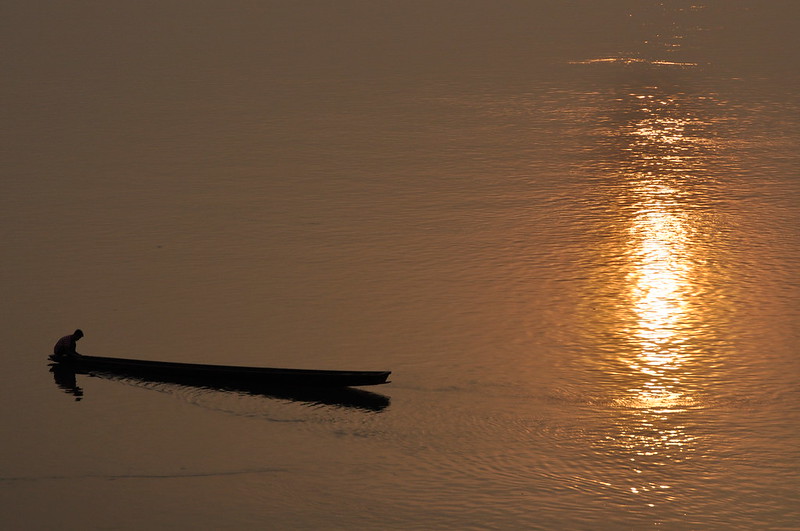These were the first two phrases out of the mouth of an elderly gentleman as I walked along the rim of the Mekong River in Tha Bo in northeast Thailand. While it is not unusual to hear these two questions early in a conversation, the second question did come a little more abruptly than usual.
 |
| View from the rim of the Mekong in Tha Bo |
While these seem like somewhat intrusive questions to those of us from North America, they are not all that unusual here in Thailand. “Where are you going?” is used similar to “How are you?” in our culture. It is just a question to open a conversation if the hear is actually in the process of traveling somewhere. Otherwise they may ask, “Have you eaten yet?”
The second question is related to the status system in Thailand. There are a lot of unwritten rules here in Thailand with regard to how you communicate with and relate to people depending on their status relative yours. Thai people who do not know each other will quickly try to figure out their relative status so that they know how to behave. The age question is only used if it is not obviously clear who is the older one. There may also be questions related to employment, salary, education, etc.
The status thing here in Thailand can be a bit disconcerting to those of us who come from a more egalitarian culture. But when everyone follows the rules it does add a measure of civility to the culture. And it is nice to be respected as an older person rather than disdained or deemed irrelevant as is so common in the west. The saying back in the hippie era was something like, “never trust anyone over 30.”
What is hard for us foreigners is that we don’t know all the rules. And it is not like you can buy a book that explains it all. For example, it is standard when greeting someone for the person of lower status to initiate the greeting with a “way” (palms held together below the chin). But sometimes I don’t know where I stand. As an older, foreign male with a college education my status tends to be relatively high. But in language school I have had a hard time trying to figure out what to do. Typically the student is lower status than the teacher and so initiates the greeting. But what if the teacher is a female, half my age and does not have as much college education as I do? Fortunately our school tends to not adhere to the rules to closely.
Too add a complication to all of this, things in Thailand appear to be changing rapidly. Young people are dropping cultural traditions at a rather rapid rate, especially in large cities. This makes things a lot easier for us foreigners. When we move to a more remote part of Thailand or when we work in the rural areas we will have to be more careful.
Our desire in Thailand is not to impress people with western culture (many are already enamored with it) but to shine the light of Jesus into the culture. This is not an easy task. But we want to say, like the Apostle Paul said, “I have become all things to all men so that by all possible means I might save some.” 1 Corinthians 9:22 (NIV)
